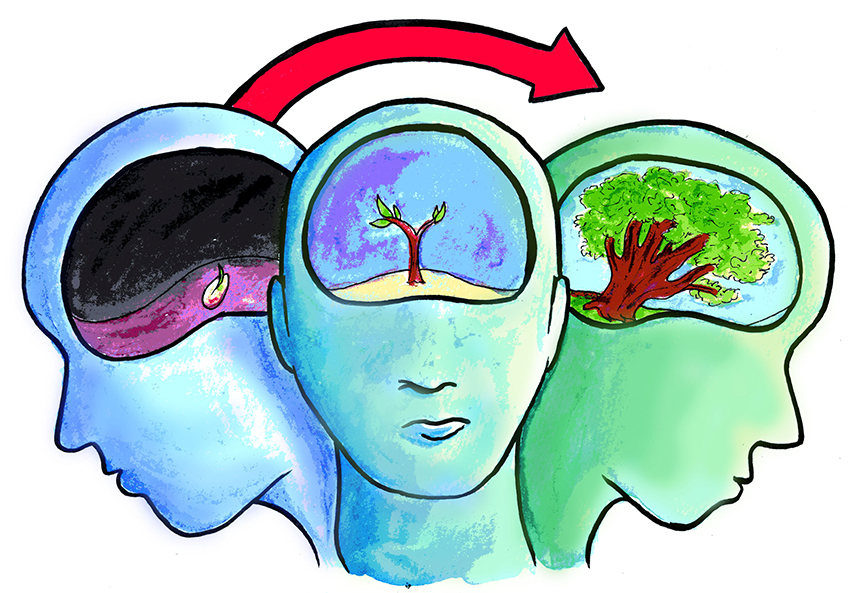Growth mindset is correlated with success, but it’s not a quick fix for large-scale problems.
Growth mindset is the idea that intelligence is malleable, as opposed to fixed mindset, which suggests intelligence is finite and static. Growth mindset is the “it” concept of modern educational psychology — it improves learning outcomes for challenging material, as demonstrated by Stanford University psychologist Carol Dweck.
At UT-Austin, assistant psychology professor David Yeager conducts research refining the implications of growth mindset.
In a field experiment, Yeager demonstrated how mindset interventions lead to increased academic achievement. At UT, all incoming freshmen are required to complete a web-based 30-minute “University mindset” activity at orientation. Students randomly receive a growth mindset version of the activity or a placebo version.
The results show students with the mindset intervention have a higher chance of completing at least twelve credit hours in their first semester. This effect was even greater for African-American students. According to the Journal of Experimental Social Psychology, African-American students tend to obtain lower grades than their white counterparts, even when entering college with equivalent test scores. Research suggests a stereotype threat undermines their cognitive ability. Thus, this intervention has significant applications in countering stereotypes and closing achievement gaps.
Though this is an appealing concept, Yeager discourages growth mindset as the sole answer to these problems.
“Education is very fad driven because the problems feel very dire, so people are quick to latch onto anything that is promising,” Yeager said. “It is true we have had great success in our experiments, but now a big concern is overuse, misuse and overdiagnosis.”
Yeager said these issues are more complicated than they seem.
“Growth mindset is often misinterpreted as telling people to try harder.” Yeager said. “It becomes a new excuse to blame people for their failure."
If not applied correctly, interventions might actually further inequality, according to Yeager.
“Advantaged people could then use growth mindset as a tool for making the argument that disadvantaged people are getting what they deserve,” Yeager said.
Lisa Brown, course program specialist at the UT Charles A. Dana Center, works on growth mindset interventions. She incorporates mindset concepts into secondary math curriculums. Her work emphasizes the creation of learning communities.
“It’s about providing a space for students to make mistakes, for them to feel challenged so students can become convinced they can become smarter by working harder,” Brown said.
Brown collaborates with Agile Mind Inc. to implement interventions such as the Academic Youth Development programs and Intensified Algebra I programs. The programs are in 500 schools in 12 states. Even though these programs have been initially successful, Brown acknowledged the risk of moving too quickly.
“We have to be really careful about not using those categories to marginalize students, or faculty for that matter,” she said. “How do we keep a growth mindset about growth mindset?”















